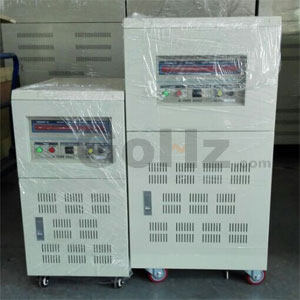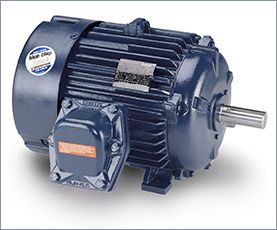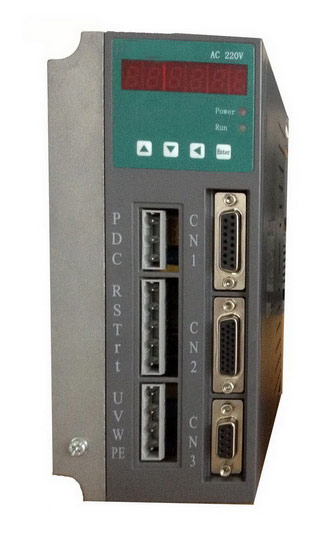to: Electric motor selection
in Category: Wiki
Post Comments
<- - Back to Electric motor selection - ->
First, 7 things to consider when choosing an electric motor:
Choosing the right motor isn’t always straightforward. There are so many variables to consider that it can be hard to know where to start. The wrong motor can result in a myriad of problems, and can ultimately cause application failure.
(Here are) some initial questions that you need to answer before attempting to find the right motor for your project.
Questions you need to consider in choosing a motor:
Speed: How fast should the motor be able to run? Torque: Which motors provide enough torque? Size: What are the size restrictions? Precision: Does the motor need to be accurate? How accurate? Environment: What is the environment in which the motor will be running (is there dust, moisture, air flow, etc.)? Communication: How do you want to communicate with the motor? Cost: What is your budget?
Once you’ve come up with answers to these preliminary questions, you can begin to figure out the best option for your application.
Next, deciding between an AC or DC electric motor:
Although there are many options within each category, understanding the basic differences is the starting point for deciding the best motor for your application.
DC Electric Motors
DC motors are electric motors powered by direct current. Typically, DC motors spin in excess of 15 000 rpm and must be readjusted to the appropriate speed. They are used in a wide variety of applications from small toys and electronics to larger industrial machines such as paper mills.
Advantages:
- Small size
- Simple control mechanisms
- Quick starting/stopping
- Wide range of speed and torque control
- Cost-effective
Disadvantages:
- Not precise
- Even with stable operating conditions, their speed can vary
- Performance can be degraded by dust, heat, or bearing too much load
- Require a lot of regular maintenance
AC Electric Motors
AC motors are electric motors powered by alternating current. Unlike DC motors, AC motors cannot be powered with batteries and instead require special connections. They are often used in both household appliances and industrial applications, such as machine tools, blowers, pumps, conveyors, and compressors.
Advantages:
- Lighter
- Produce less friction and heat
- Long lifespan
- High starting torque
- Cheaper and easier maintenance
- No slip (for synchronous AC motors)
Disadvantages:
- Speed is harder to control
- Devices used for communication are complicated
- Can be noisy
- Require a starting switch (induction AC motors)
- Can experience rotation slips (induction AC motors)
What considerations to you use when purchasing an electric motor?
 Servo Motor & Drives
Servo Motor & DrivesCategory
Featured
 Assuming that you checked the mechanical properties and the centrifugal force at the rotor at the higher speed from 50Hz to 60Hz, and they are OK, then ...
The troubleshooting guide outlines a comprehensive variety of motor problems. Generally the categories are arranged according to symptoms offering brief ...
The main difference between AC and DC motors is that the magnetic field generated by the stator rotates in the case of AC motors. A rotating magnetic ...
Assuming that you checked the mechanical properties and the centrifugal force at the rotor at the higher speed from 50Hz to 60Hz, and they are OK, then ...
The troubleshooting guide outlines a comprehensive variety of motor problems. Generally the categories are arranged according to symptoms offering brief ...
The main difference between AC and DC motors is that the magnetic field generated by the stator rotates in the case of AC motors. A rotating magnetic ...
 First, 7 things to consider when choosing an electric motor: Choosing the right motor isn’t always straightforward. There are so many variables to ...
Induction motors operate on the principal of current induction in the rotor which must rotate at a speed less than synchronous speed for induction to ...
First, 7 things to consider when choosing an electric motor: Choosing the right motor isn’t always straightforward. There are so many variables to ...
Induction motors operate on the principal of current induction in the rotor which must rotate at a speed less than synchronous speed for induction to ...
 Gozuk synchronous ac servo drive is designed and manufactured, employing the advanced control algorithm based on the market demand, which can realize ...
A BLDC motor may have a trapezoidal Back EMF, there is something called Trapezoidal Motor Control Methodalogy (TRZ). TRZ is an extension of 6-step control ...
Permanent Magnet motors are more efficient than SCIM as the field in the rotor is permanently there. The big advantage for permanent magnet motors is in ...
Gozuk synchronous ac servo drive is designed and manufactured, employing the advanced control algorithm based on the market demand, which can realize ...
A BLDC motor may have a trapezoidal Back EMF, there is something called Trapezoidal Motor Control Methodalogy (TRZ). TRZ is an extension of 6-step control ...
Permanent Magnet motors are more efficient than SCIM as the field in the rotor is permanently there. The big advantage for permanent magnet motors is in ...
